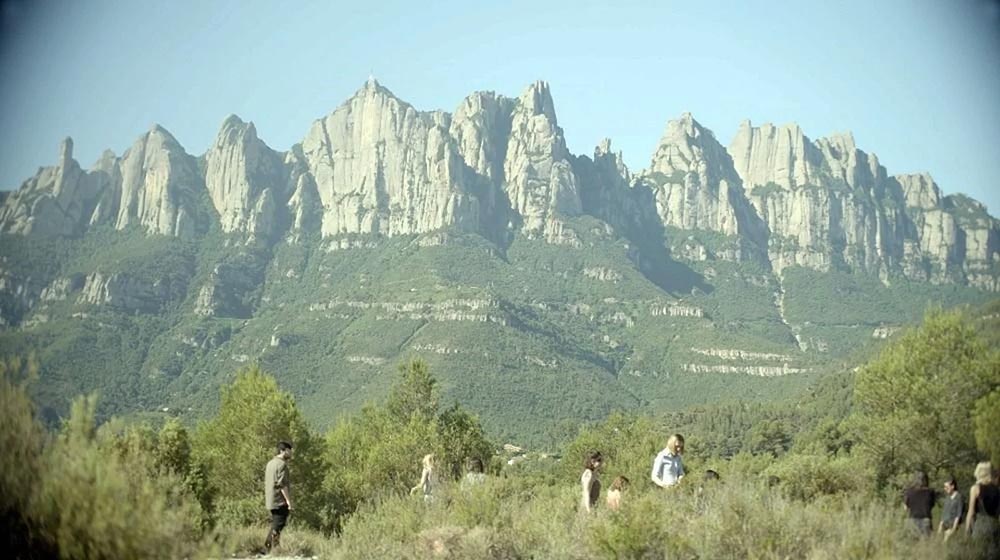In 1940, the Catalan psychiatrist and revolutionary Francesc Tosquelles fled the Spanish Civil War and the repressive Franco regime, landing in the remote village of Saint-Alban-sur-Limagnole, France. There, he took on the directorship of its psychiatric hospital, instituting an experimental approach known as “institutional psychotherapy” whereby non-patients—including doctors, nurses, nuns, and sex workers—and their families lived in the hospital amongst patients, with all residents taking an equal and active role in the management of the institution, as well as the social, creative, and otherwise productive activities within and beyond its walls. Saint-Alban also served as a refuge for intellectuals and artists like Tristan Tzara and Paul Éluard, the latter of whom collected toys, gifts, and other objects made by patients within the therapeutic context. These objects were produced to barter for much-needed food in Saint-Alban-sur-Limagnole and to connect with the village’s denizens. Éluard’s collection later proved essential to Jean Dubuffet’s conceptualization of Art Brut, also known as “Outsider Art.” Works by established artists that were inspired by these creations, in addition to some of the objects themselves and other attendant archival materials, are currently on view as part of the American Folk Art Museum’s exhibition “Francesc Tosquelles: Avant-Garde Psychiatry and the Birth of Art Brut.”
But Tosquelles’s role in art history was essentially forgotten until the Reina Sofía Museum’s exhibition “Francesc Tosquelles: Like a Sewing Machine in a Wheat Field” in 2022, which is excerpted at the ongoing AFAM exhibit. This is just one of the many facets of Tosquelles’s life and work that director Mireia Sallarès explores in her latest film, Potential History of Francesc Tosquelles, Catalonia and Fear (2021)—an incantatory documentary about the eponymous psychiatrist, his thinking, and much else that has been overlooked about him in the official record. The film was inspired by Ariella Aïsha Azoulay’s Potential History: Unlearning Imperialism, a 656-page explication of what pre-imperial thinking entails. Most relevant to the film are Azoulay’s calls to create space for possible presents, as well as the need to incorporate the voices of imperialism’s “victims” and their descendants, along with that of “perpetrators” and their descendants, in reparative projects. Sallarès’s documentary opens with voice-over narration that outlines how the film has, accordingly, “adapted, fictionalized, and made performative” Tosquelles’s unrecorded history, not just as a contributor to the development of Art Brut (which notably separated patients’ creations from their context and recontextualized them within the walls of that most imperial of institutions—the museum), but to Catalonian revolutionary history, in addition to detailing his repudiation of the pervasive “fear of madness” he observed amongst the psychiatrists of his time.
Potential History is a dense and intellectually stimulating film that patiently unfolds toward a number of revelations, producing a rolling epiphanic satisfaction throughout. Each section explores what has been unrecorded about Tosquelles and Saint-Alban’s history. Here are just a few instances of the history—unrecorded, imagined, and potential—explored in the film: the varied and significant roles women played at the hospital as described by former doctors’ wives and current nuns; the reemergence of power hierarchies in Tosquelles’s “use” of sex workers with his more reticent male patients, as described by present-day sex workers; Tosquelles’s rousing refusal of Stalin; and the particularly generative conversations between Tosquelles and his mentee Frantz Fanon. The film’s 135 minutes rely most heavily on the word, whether narrated by Sallarès, presented as unattributed intertitles, or delivered in lengthy monologues from a rotating cast of talking heads, most of whom are identified only by their occupation, if at all. As Sallarès explains prior to the closing section of the film—which excerpts a 12-hour interview with Tosquelles recorded not long before his death in 1994—“we believe that the potential history must, above all, be committed to the naked circulation of words” and presented without “images that interrupt or illustrate the narration.” A researcher investigating the history of psychoanalysis in Catalonia further explains that words are also essential to Tosquelles’s project because they are equivocal and require interpretation; thus the word, and its use in this documentary, provides the opportunity for both an encounter with the other and, therefore, to learn about ourselves.
Potential History of Francesc Tosquelles, Catalonia and Fear screens this evening, July 6, and throughout the weekend at Anthology Film Archives. Mireia Sallarès will be in attendance for a Q&A.



